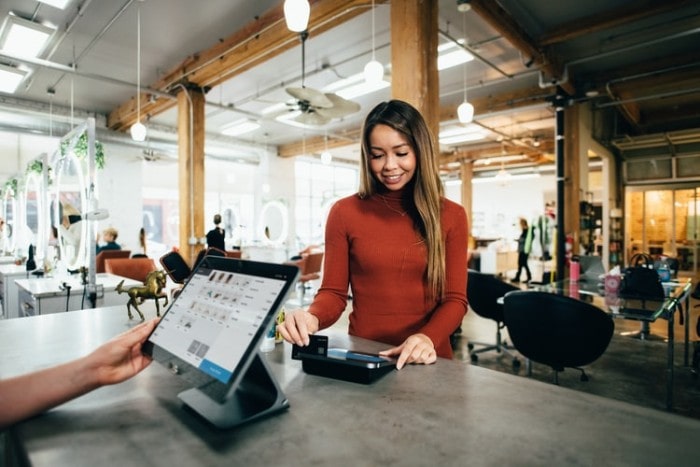
AsCOVID-19 vaccinations help protect our health this year, they’re also expected to inoculate businesses from random shutdowns and layoffs. Consumers and shop owners are already getting down to business. Since Americans saved record amounts last year, more than one-third of their disposable income, experts predict they are about to start living, and spending, again. Economists forecast that travel, dining, and entertainment will come back by midyear. You can ensure that your business is ready and set to go with these four global payment processing trends.
1. MobileMoney
Mobile apps that allow for contactless payments have basically turned smart devices into mobile money. While mobile wallets were in demand last year, they’re expected to grow in popularity in 2021. Apply Pay, PayPal and Google Wallet are the most popular mobile payment apps. About half of U.S. retailers such as McDonalds, Best Buy, Starbucks and Walgreens accept ApplePay.
With a phonein nearly every hand today, mobile payments solutions are increasing worldwide and driving growth in non-cash transactions, according to Statista. The group forecasts there will be 1.31 billion mobile payment transaction users worldwide in 2023, up from 950 users in 2019. To stay relevant and stay in the game, merchants must offer this payment option.
2. Cashless at Checkout
Whether it’s the threat of getting a virus from touching dollar bills and coins or the hassle of handling it, consumers in 2021 don’t want to pay with cash. Instead, they want touchless payment methods like tap and pay. Studies show 63% of consumers would switch to a business that installed contactless payment options. On the flip side, the Visa study found 48% of consumers would not shop at stores that require them to make physical contact with a cashier or a shared device. Business Wire called rethinking checkout or point-of-sale experience “essential for survival on Main Street.”
3. Pay it Plans
With personal debt at an all-time high from the pandemic and recession, pay it plans have boomed and are growing more popular. During last year’s holiday season, 44% of consumers said being able to use a“buy now, pay later” program was an important factor in determining how much they would spend. More importantly for retailers, 45% of shoppers said the “by now, pay later“plans would allow them to spend at least 10% to 20% more than they would have using a credit card. The pay-later service allows consumers to own a product or experience a service before they have made the entire payment. Pay it plans can be a great way for retailers to offer expensive items and encourage consumers to buy now. The services Sezzle, Afterpay, Affirm and QuadPay are just some of the companies that have teamed up with merchants to make installment options available at checkout. (And just like credit cards, the retailers are charged the processing fee, not the shoppers.)
Since American Express launched Plan It in 2020, more than 5.5 million similar plans have been created, and are worth more than $4 billion. Most of the plans were created by Millennial and Gen Z consumers, according to American Express. With so many payment options, consumers (especially younger shoppers) will only continue to embrace the flexibility and convenience at checkout.
4. Security
As fast as the new payment systems are being created, cybercriminals are attacking them even faster. Biometric authentication such as fingerprints, face recognition and iris scans are some of the newest and most secure technologies for securing paying processes.
But even with those advanced protections, most payments from credit cards to mobile apps aren’t immune to hackers and employee theft. That’s because retailers collect all of that data and often store it in one location, leaving it vulnerable to criminals. Red Maple provides, the best way to stop thieves from inside or outside your business is to invest in a new hosted service that safeguards your customer’s credit card information called StagedPay™. The service locks upa portion of the customers’ personal and credit card information in separate, secure vaults so that data can’t be compromised. The merchant never has the entire credit card number so it can’t be stolen. In addition, find a program with two-party authentication.
It’s revolutionary technology in the face of exploding cybercrime. Fundera reports there was a 424% increase in new small business cyber breaches last year. Studies show that 60% of small businesses hit by cyberattacks will go under within six months, as cybercrime costs small and medium businesses more than $2.2 million a year in the U.S. alone.
Being aware of consumers’ desires for faster, secure checkouts with payment processes that are easy to use and convenient in 2021 will allow retailers to bounce back and attract new business in the post-pandemic economy.
